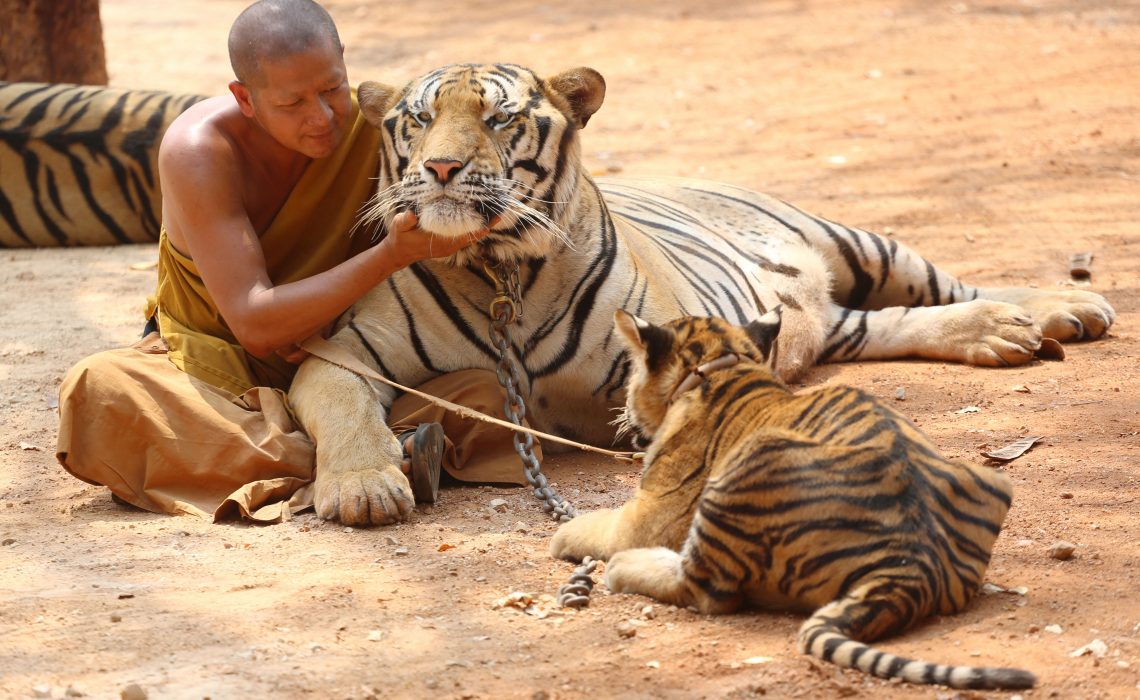
You might also like:
AN animal rights NGO has threatened to take authorities to court for granting a zoo license to Thailand’s notorious tiger temple in the Kanchanaburi province.
The temple, formerly known as Wat Pa Luangta Bua Yannasampanno, has been accused for trafficking, exploiting, and breeding tigers for commercial reasons.
The popular tourist temple, which brings in US$3 million a year, allows visitors to interact and take selfies with the tigers, which are led by handlers on collars and leashes.
A Thai Buddhist monk plays with leashed tigers at the temple. Pic: AP
Edwin Wiek, who runs Wildlife Friends Foundation Thailand, said the lawsuit was a “last resort” in his efforts to stop the tiger temple from getting the long-sought permit that would legalize its operations.
The battle between authorities, animal rights activists and the temple has been a long and arduous one due to the unclear legal status of the temple’s hold on the tigers.
Last year, the DNP demanded the temple hand over its 147 tigers to authorities because it lacked the permit to keep them.
The temple maintains that wild tigers have sought sanctuary in its compound and reproduced at the site, while critics point out that the temple is not a zoo and has no facilities to properly handle animals.

A tourist cautiously pets an adult tiger at the temple. Pic: AP
The DNP has defended its decision to grant the tiger temple a permit. Adisorn Noochdamrong, the department’s deputy chief, said that the temple had set up a company, the Tiger Temple Co, to run the zoo.
In a report by National Geographic, it was alleged that monks at a monastery in Thailand have been speed-breeding the tigers for illegal trade. It’s also believed that the tigers were kept in poor conditions.
According to the report, “former workers and animal welfare advocates have alleged that the tigers have been abused and exploited: beaten, fed poorly, in need of veterinary care, and housed in small concrete cages with little opportunity for exercise or time outdoors.”
Construction of the new zoo is said to be completed in six months.
Source: travelwireasia.com
